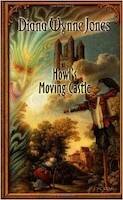Review: The Southern Book Club's Guide to Slaying Vampires
/5 stars. I loved this. I'm so lucky I snagged it from the library, but I look forward to owning a copy one day so I can re-read my favorite bits. Absolutely epic.
From the outside, Patricia Campbell has everything a woman could want - sensible husband, two kids, home in a nice neighborhood, a safe community. She's living the suburban dream. Unfortunately, life as a housewife and full-time mother leaves her feeling a bit hollowed out. She jumps at the chance to form a sort-of book club so she and other neighborhood moms can read all things dark and exciting: true crime, horror, and murderrrr books.
Then a stranger shows up in the neighborhood, and things get weird. Patricia is violently attacked and children begin to disappear in the surrounding area. She's drawn to the stranger, but it soon becomes clear that he's not at all who he says he is - he's actually something much worse. Something that may or may not even be human.
Like many (but not all) great books about vampires, The Southern Book Club's Guide to Slaying Vampires is not really about the monster. He exists rather in the shadows - in fact, he doesn't even show up until 10% in - as we watch Patricia Try To Have It All and Also Protect Her Children from a Suspicious Threat Even Though Nobody Believes Her.
(It's not actually that cliche - Patricia's a fantastically flawed heroine who messes up a ton with nothing but good, or at least understandable, intentions. Her friends are equally justified and essentially victims of a society designed to cripple women. So.)
Speaking of Nobody Believing Her, holy shit - I squirmed so much through the middle of the book, just prior to the flashforward. The term humiliation horror crossed my mind more than once as Patricia's character was completely squashed by the true monster of the book: her husband. All the husbands. All of them deserved so much worse than they got. I was hoping for a truly satisfying I Told You So moment, just to watch the tables turn. They deserved to be vampire food, all of them. Oh well.
In many ways this book was exactly what I expected: a charming look at a group of strong and spirited Southern housewives versus a vampire in the 90s. In other ways, though, I was completely surprised. This book is so much more than a thrilling monster fight. It is a cultural study, a piece of anthropology, a tribute to imperfect efforts, a long overdue testament to the housewife, a deep and painful critique of the trash husbands of the not-so-distant past. It shouts loudly about the shittiness of marriage and parenting and adult friendships and the suburbs. It offers grotesque horror alongside hilarious moments. Slight uneven packing aside, there's snappy dialogue and true courage and a lovely wrap-up that left me grinning. Grady Hendrix nailed in.
The Southern Book Club’s Guide to Slaying Vampires on: Amazon | Bookshop.org | Goodreads










